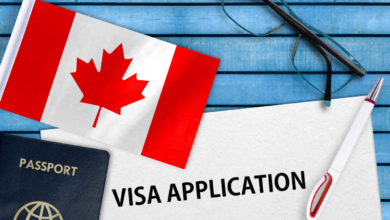5 Useful Things to Know Before Filing a Patent in the UK

In today’s fast-paced world of innovation, protecting your intellectual property is crucial. Filing a patent is a strategic move to ensure that your unique ideas and inventions remain exclusively yours. If you’re considering filing a patent in the UK, it’s essential to navigate the process with knowledge and foresight. In this article, we’ll delve into the five key considerations you should be aware of before embarking on the journey of patent filing.
Understanding the UK Patent Process
The UK patent application process can seem complex at first glance, but breaking it down into stages makes it more manageable. From the initial filing to the eventual granting of the patent, each step plays a vital role. It’s crucial to familiarize yourself with the guidelines set by the UK Intellectual Property Office (UKIPO) to ensure a smooth and successful application process.
Importance of Prior Art Search
Before filing a patent, conducting a thorough prior art search is paramount. This involves researching existing patents and literature to determine if your invention is genuinely novel. Neglecting this step can lead to complications during the patent examination, potentially resulting in rejection. A comprehensive prior art search sets the foundation for a strong and defensible patent application.
Types of Patents in the UK
Understanding the different types of patents available in the UK is essential for selecting the most suitable protection for your invention. The three main types include utility patents, covering the functional aspects of an invention; design patents, protecting the visual appearance; and plant patents, specifically for new plant varieties. Each type serves a unique purpose, so identifying which one aligns with your invention is a crucial early step in the process.
Patent Eligibility Criteria
Not all inventions qualify for a patent. The UKIPO has established specific criteria that inventions must meet to be eligible for patent protection. These criteria include novelty, inventiveness, and industrial applicability. Before investing time and resources in the filing process, ensure your invention satisfies these prerequisites to enhance the chances of a successful application.
Common Mistakes to Avoid
The patent filing process is intricate, and several common mistakes can hinder the success of your application. These include incomplete documentation, inaccuracies in describing the invention, and failure to meet deadlines. Being aware of these pitfalls allows you to navigate the process more effectively, increasing the likelihood of a successful patent application.
Costs Associated with Patent Filing
While obtaining a patent is an investment in protecting your intellectual property, it’s essential to be aware of the associated costs. The expenses include application fees, potential legal fees, and maintenance costs. Understanding these financial aspects in advance enables you to plan and budget effectively for the patent filing process.
Timeline for Patent Approval
Patience is a virtue when it comes to patent approval. The process can take several months to years, depending on various factors. Knowing the expected timeline helps manage expectations and plan accordingly, especially if your invention relies on timely patent approval for market competitiveness.
Benefits of Professional Assistance
Navigating the intricacies of patent law can be challenging, and seeking professional assistance can significantly enhance the success of your application. Patent attorneys bring expertise and experience to the table, ensuring that your application aligns with legal standards and increasing the likelihood of a smooth approval process.
International Considerations
In a globalized world, considering international patent protection is crucial for maximizing the market potential of your invention. Understanding the options available for protecting your invention beyond the UK borders ensures comprehensive intellectual property coverage and guards against potential infringement.
Post-Grant Procedures
Securing a patent is not the end of the journey. Post-grant procedures, including potential challenges and maintenance requirements, must be understood. This knowledge ensures you can protect your invention effectively throughout its lifespan, addressing any issues that may arise after the patent has been granted.
Challenges in Patent Enforcement
While a patent provides exclusive rights to the inventor, enforcing these rights can be challenging. Understanding potential hurdles in patent enforcement, such as litigation and infringement issues, prepares you for the realities of protecting your intellectual property in a competitive market.
Recent Changes in UK Patent Law
The legal landscape is dynamic, with laws and regulations subject to change. Staying updated on recent amendments to UK patent law is crucial for ensuring that your application aligns with the latest requirements and standards. Adapting to changes promptly can give your patent application a competitive edge.
Success Stories
Drawing inspiration from success stories in patent filings can provide valuable insights and motivation. Learning from the experiences of others who have successfully navigated the patent process gives you a practical perspective and encouragement for your patent filing journey.
Conclusion
Filing a patent in the UK is a significant step in protecting your intellectual property, and being well-informed is key to success. From understanding the patent types to navigating the approval process, each aspect contributes to securing your invention. Patience, diligence, and a strategic approach are crucial for a successful patent filing.
FAQs
- Can I file a patent without professional assistance?
- While it’s possible, seeking professional help increases the likelihood of success and ensures compliance with legal standards.
- How long does the patent approval process take?
- The timeline varies, but it can take several months to years for a patent to be approved.
- What happens if my invention doesn’t meet patent eligibility criteria?
- If your invention doesn’t meet the criteria, it may not be eligible for patent protection, but alternative forms of protection may be available.
- Are there any grants or funding options for patent filing?
- Depending on your location and industry, there may be grants or funding options available to support patent filing.
- Can I file an international patent from the UK?
- Yes, it’s possible to file an international patent application from the UK through the Patent Cooperation Treaty (PCT) process.












2 Comments